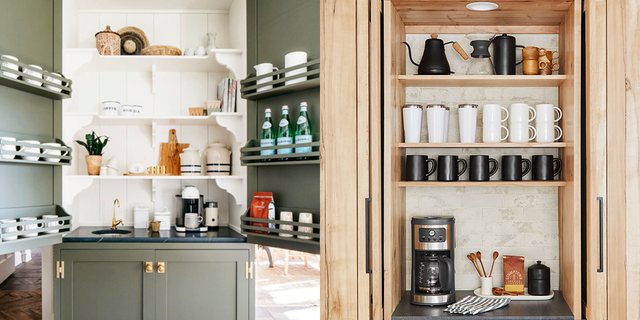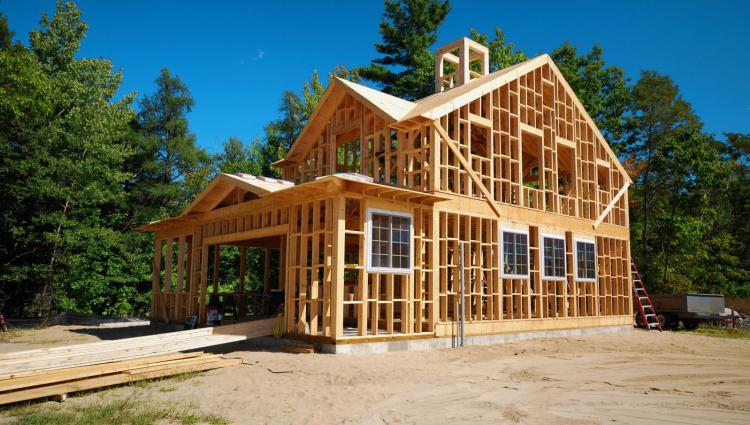Known for the minimalist, modern designs of their outdoor furniture collection—which could just as easily be used inside—Gloster has been ahead of the curve in ethical and sustainable manufacturing since the company first set up shop during the 1960s in West Africa. Sustainability continued to be a priority when Gloster moved their operations to Indonesia in the late 1980s in order to meet their increased production demands with sustainably-farmed teak. Although Gloster’s teak graders have been working closely with the government-owned plantations and earning their trust for years, now, the company is embarking on their next major chapter: The official opening of the Gloster Furniture Teak Plantation—the first joint operation of a privately-owned Teak plantation in Indonesian history.
With the acquisition of land and their partnership with Indonesian state forest resources, Gloster is excited to help protect the environment on an even larger scale.
The venture is a partnership between Gloster Indonesia, the company’s privately owned Indonesian factory—where waste is kept to an absolute minimum and the factory is managed to exceed European safety standards—and Perum Perhutani, the state-owned enterprise that manages Indonesia’s state forest resources on the islands of Java and Madura. It is a partnership that will help Gloster, long known as an industry pioneer, to continue to lead the way and leave a legacy of helping to set standards for cleaner, safer, and greener manufacturing.
Gloster is known for their clean and environmentally-progressive manufacturing process. The company’s privately-owned Indonesian factory keeps waste to a minimum and exceeds European safety standards.
With 5,000 young teak trees spread uniformly across the newly acquired 12.5 hectares of Javanese lowland, Gloster now has the opportunity to increase their positive impact and help protect the environment on an even grander scale, as they increase their focus on forest management and play a larger part in the growth of the local Indonesian economy—with even deeper insight. “We can now own and manage the entire production process—improving our understanding of the processes involved and the quality of our harvest,” explains Kent Graff Andersen, Managing Director of Gloster Indonesia, “Our team is so excited to be collaborating with the villages in the plantation and we are developing our Corporate Social Responsibility (CSR) program to offer greater opportunities for those with whom we share the forest.”
Gloster’s side-by-side presence will help local plantations with maintenance and serve as a powerful deterrent to illegal loggers. In addition, the company has set up a program to help further improve local village life with a profit-sharing scheme based on the value of trees harvested.
“The Fern collection is about a sofa and armchair with two different backs, shares designer Sebastian Herkner. “The high ones create an open space. It protects you but is not isolating.”
The open weave of the Fern collection is meant to “connect users with their surroundings”.
Shop the Look
Sustainability is also a top priority when it comes to product design and it is something that German designer Sebastian Herkner, who has designed a few collections for the company, always has on his mind. “The new Fern collection plays with [sustainably-farmed] teak and rope,” he explains. “It is also a high-quality product and I think that this makes a product sustainable as well. Sustainability is about the selection of material, its origin, how it is produced, and the place of production—and a high-quality product is long-lasting. I want my products to become companions for life.” Herkner also designed the portable solar Ambient Line Lantern, which is crafted from mouth-blown glass with a solar panel on top. “It makes sense to use the power of the sun [during the day] to create a beautifully lit setting in the evening,” he adds.
Dune was Herkner’s first collection for Gloster. The fabrics for the Dune collection are the first 3D knitted outdoor textiles on the market and the design: a teak base paired with an aluminum framework combined with cozy cushions shows new possibilities for outdoor furniture upholstery. “The aesthetics are very much inspired by indoor furniture. My idea was to bring that quality and feel to the garden,” says Herkner.
Danish designer Henrik Pedersen conceived of the new Lima modular seating collection to blend form with function and create outdoor seating that is a mix of sustainably-farmed plantation teak, outdoor wicker, and natural leather.
Shop the Look
Gloster is also conscious of waste material, and encourages smaller products that can be designed from the off-cuts of production: The Ambient RAY lantern and Deco Screens both make use of the small, excess pieces of wood scraps left over from production which would otherwise “be burned or turned into mulch”.
Also designed by Henrik Pedersen, the Kay collection prides itself on its durability, comfort, and innovative design. The style marries a hardwearing, all-weather fiber with Gloster’s signature sustainably-farmed teak frame.
The new X-Frame table by Henrik Pedersen features a smoked glass top that enables a clear view of its striking teak framework. Expertly crafted from plantation teak, the elegant, yet sturdy underframe epitomizes Gloster’s approach to design. Gloster only uses truly mature teak trees in production, an approach that ensures super strong furniture that lasts.
Gloster Group CEO Svend Loevbjerg aptly concludes that the company’s sustainability mission is a narrative that has been evolving from the start. ”Our founder Paul Wallevik worked with wood from day one. Now, 57 years later, we are able to come full circle and follow our very own teak trees which will grow over the next 50 years—before we start making them into furniture.”







